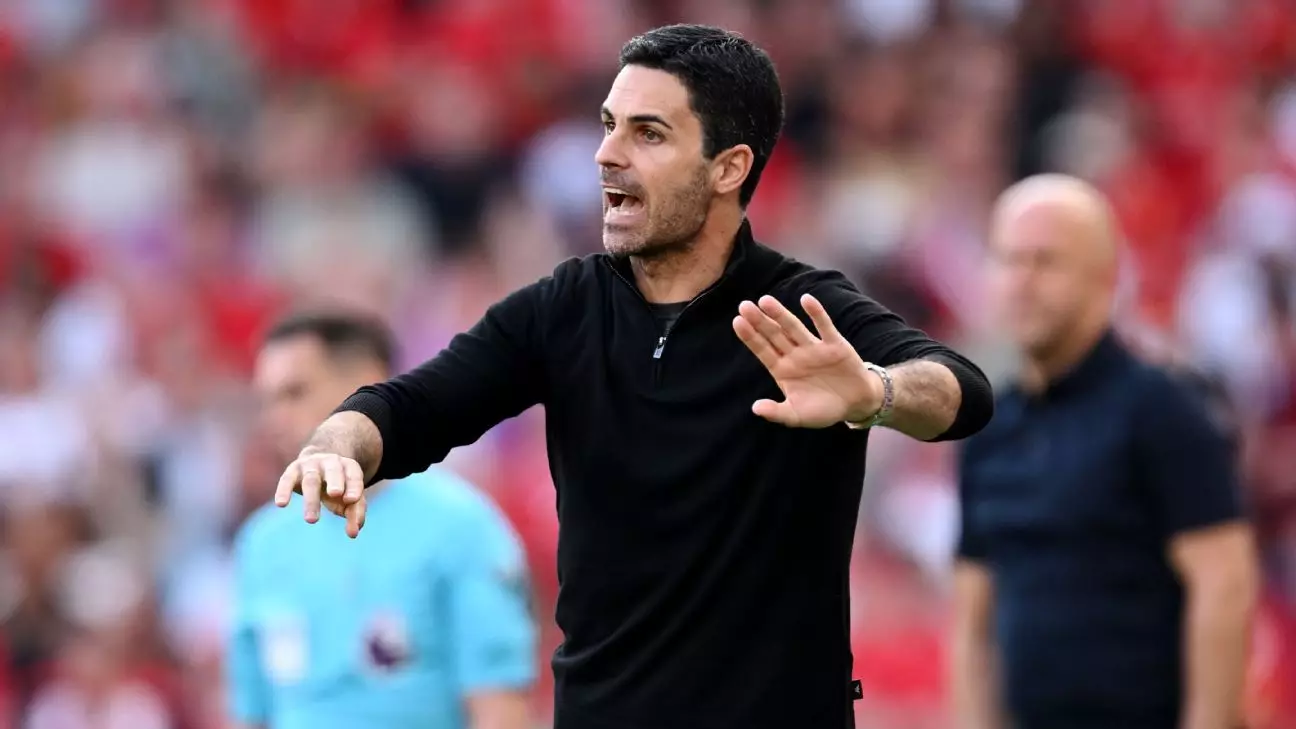Arsenal’s recent clash with Liverpool at Anfield was a potent reminder of the volatility of football. Despite managing to snatch a point while recovering from a daunting 2-0 deficit, manager Mikel Arteta’s candid appraisal of his squad’s performance highlighted a vicious dissatisfaction with the standards being set. While many teams may celebrate such a comeback, Arteta’s insistence on condemning the first-half display underscores the relentless pursuit of excellence that he champions as Arsenal’s leader.
The Gunners entered the match riding the wave of a recent Champions League exit, following a devastating defeat to Paris Saint-Germain earlier in the week. This defeat could easily have rattled the resolve of any lesser team. Yet, what was apparent from the outset was that the residual disappointment loomed large as Arsenal stumbled into their encounter with Liverpool, allowing Cody Gakpo and Luis Díaz to find the net early. These lapses suggested a psychological fragility that could undermine any title ambitions.
The Fight for Redemption
However, halftime brought about a transformation. The visitors returned to the pitch with renewed vigor, showcasing their resilience with equalizers from Gabriel Martinelli and Mikel Merino. This unforeseen revival showcased the talent and tenacity within the team—qualities that Arteta is keen to harness. It’s often in these pivotal moments that a team’s character is forged, and Arsenal seemed to ascend from the depths of despair, mounting a spirited response when it seemed all but lost.
Arteta, however, has set a very high bar. In the eyes of a manager striving for greatness, the resolve to merely salvage a point is insufficient. “What we did in the first half is nowhere near the level,” he emphasized, directing fault towards himself rather than the players. This philosophical approach reflects a larger narrative in football: the understanding that on-field performance is a direct reflection of managerial strategy and motivation. In a league where complacency can cost dearly, Arteta’s insistence on maintaining high standards could differentiate Arsenal from the pack.
The Weight of Ten Men
As if the challenge wasn’t daunting enough, Arsenal’s task grew trickier with Merino receiving a second yellow card late in the game. Playing with ten men is an all too familiar burden for the Gunners this season, with such experiences potentially serving as both a curse and an opportunity for growth. Each match, especially those where obstacles abound, provides the team a chance to introspect and refine its identity. Arteta’s philosophy emphasizes collective responsibility; when a player falters, it is a systematic issue, not just an individual misstep.
With only two games remaining and the pressure of looming Champions League qualification, Arsenal’s path is fraught with stakes. The imminent encounters with Newcastle and Southampton will undoubtedly test their mettle. It’s a pivotal juncture where the team must harmonize their inner fight with style, discipline, and tactical acuity. To emerge triumphantly would signal to the football world that Arsenal is not only capable of weathering adversity, but also thriving against it.
In the unforgiving theatre of the Premier League, every point counts, but more importantly, every performance must elevate expectations. For Arteta and Arsenal, the journey is far from complete, and the lessons garnered from trials must resonate deep within the squad if they are to realize their ambitions as contenders.

